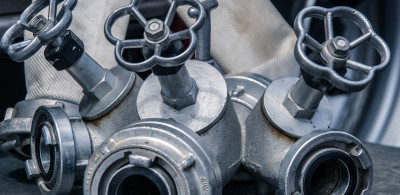The vast majority of Canadian companies doing business in the United States are both exporters and importers. That’s the price you pay to make your place in the United States. If not, if we leave the responsibility for customs to the Americans, they will choose to deal with a local company. To simplify the task, it is best for Canadian businesses to take responsibility for dealing with both the Canada Border Services Agency (CBSA) and the United States Customs and Border Protection (USCBP). It is therefore essential to become familiar with the laws and regulations of both countries. In the following text, we will answer the following question: How can we avoid the payment of duties and taxes in the case of a return of goods to Canada for repair? We’ll share some tips to facilitate merchandise transactions between Canada and the United States.
How to avoid paying unnecessary duties and taxes in the case of a repair of goods?
Take the example of a machine part exported to the United States that must return to Canada for repair and then be returned to the United States. Upon sale of the part in the United States, a commercial or pro forma invoice will have been prepared to report the merchandise to the USCBP and permit the transaction. For this transaction, the transaction value will have been used.
In Canada, regardless of the origin of the part, you can, under certain conditions, declare it in Canada as Canadian return merchandise and avoid payment of duties and taxes on presentation of proof of export (pro forma invoice, CF7501, Bill of lading). It will be important to indicate that there is no sale, that the importation is for warranty repair or not and that the value is for customs purposes only.
After repair, when you return the part to the United States, you must prepare a new pro forma invoice on which you indicate the value of the part used when returning it to Canada and, on a second line, the cost of the repair. It is important to note on the invoice that there is no sale, that the goods are returned after repair and that the repair was made under warranty or not.
To avoid paying duties and taxes in the United States, there are different options. First, if the goods are of Canadian origin and qualify for NAFTA, you can file a NAFTA certificate of origin and avoid payment of duties and taxes (Merchandise processing fee/MPF). However, if the goods do not qualify for NAFTA, you can use USHTS tariff code 980200. This code allows duty and tax-free importation of goods repaired in Canada.
Certain conditions must be respected; The repair made to the part must not alter its essential character and you must produce a declaration to this effect while specifying if the repair was made under warranty or not.
You can include a model like this in your declaration to indicate the value of your goods after repair. As you will see, it’s important to note that the items specified in the declaration are imported and received for repair or processing. It is also important to indicate the work done on the items and the value of that work. You can also specify whether the work is under warranty or not.

We are here to help
To find out all the conditions to respect and to ensure that a transaction complies with customs regulations, contact our customs consultation service at consultations@w2c.ca or by telephone at 514 368-2637, option 2. Our certified experts will be happy to answer any question quickly.

